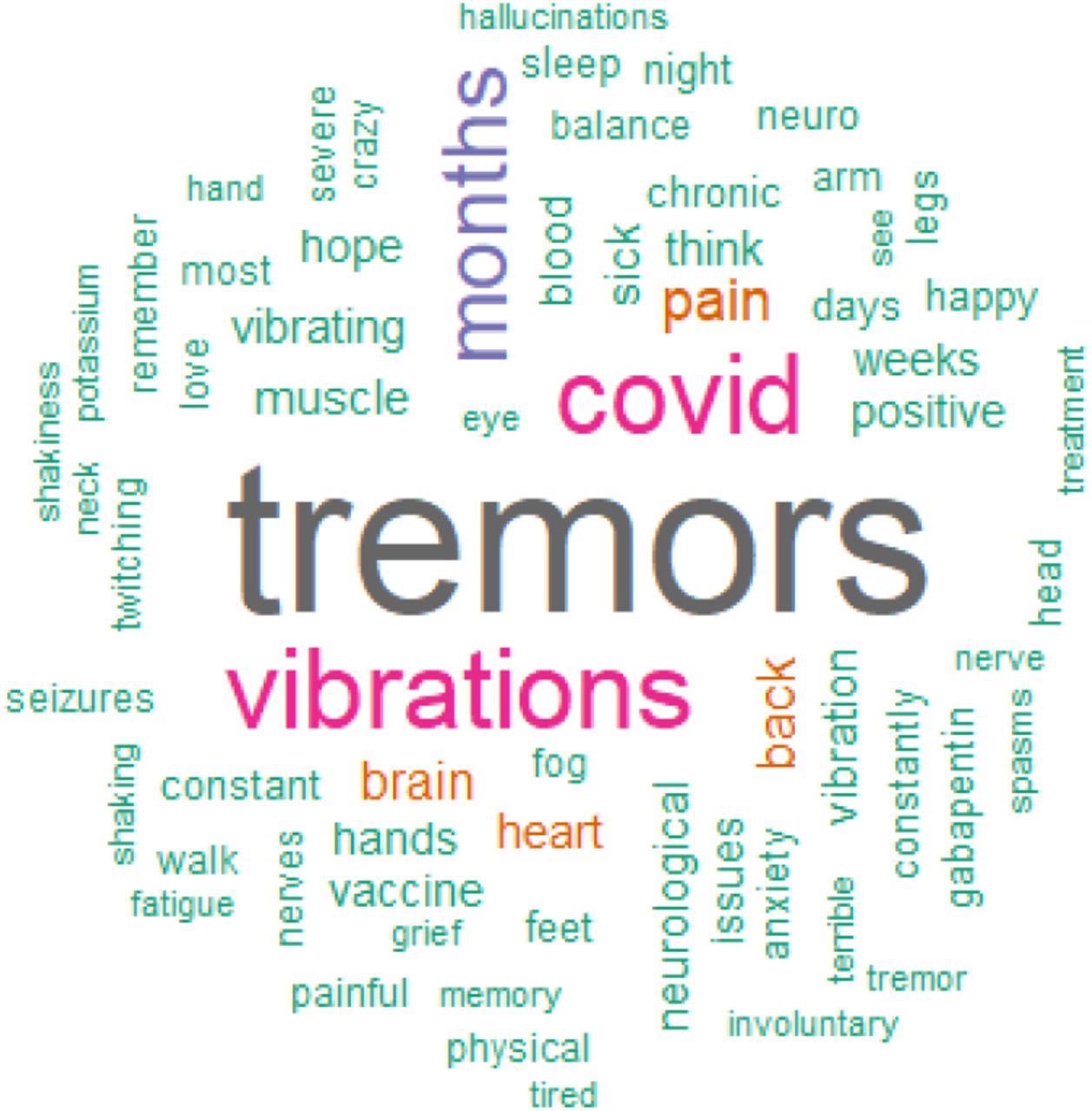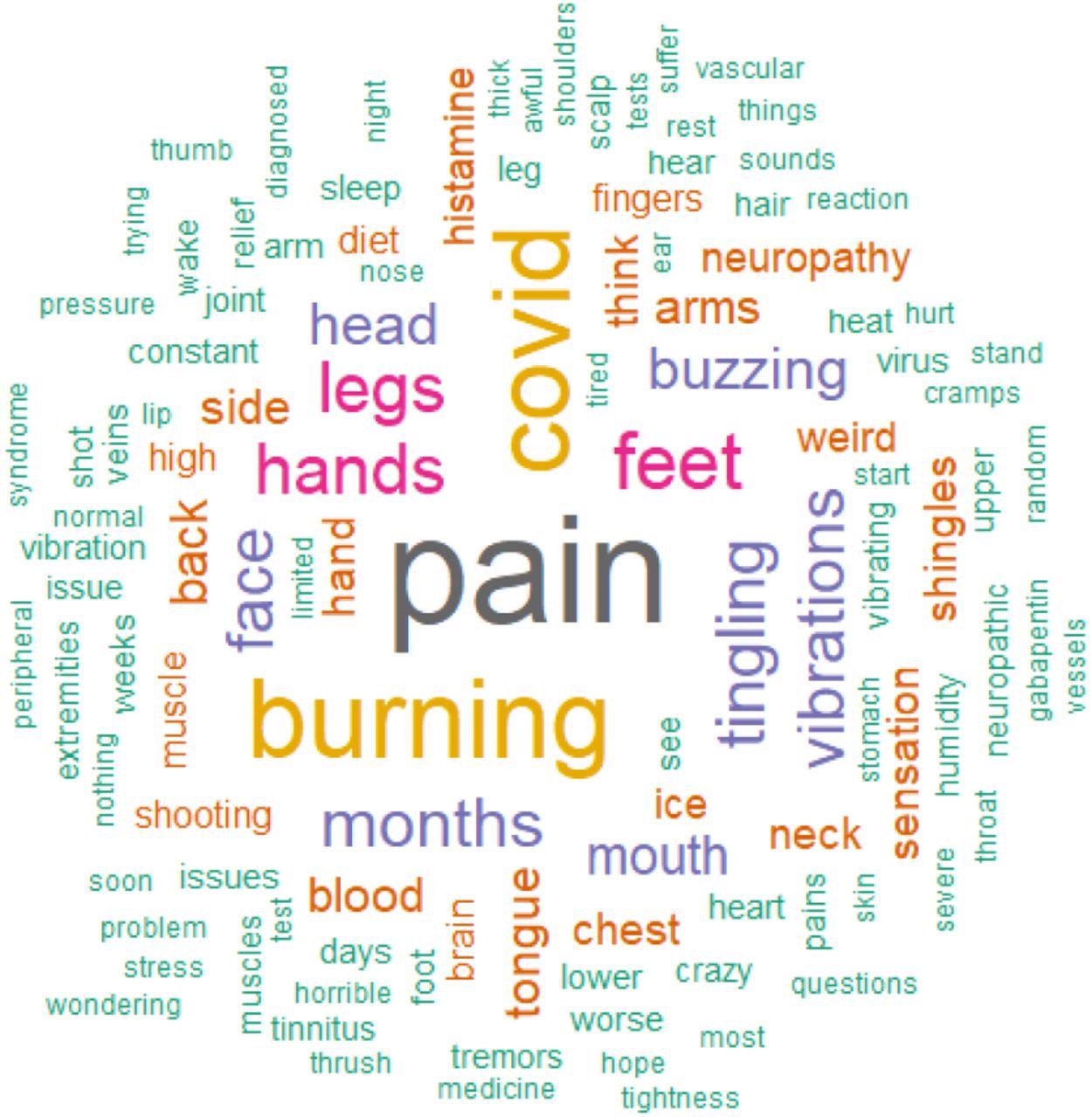Limited research has been conducted on the post-acute sequelae of the severe acute respiratory syndrome coronavirus (SARS-CoV-2) infection (PASC). PASC is marked by protean manifestation that varies considerably among individuals. The heterogeneity and non-specificity of PASC demand special attention to specific clusters of patients suffering from similar symptoms.
Proper clustering can help identify biological signatures that help in understanding and explaining underlying mechanisms for specific patients. This can guide the development of diagnostics, as well as therapeutic tools and strategies.
Some people with long coronavirus disease 2019 (COVID-19) show symptoms that have often been described as vibrations and tremors. In fact, isolated reports of patients with myoclonus have been reported from the perspective of clinicians. To date, there are no defined causes of myoclonic episodes among patients with PASC.
 Study: Internal Tremors and Vibration Symptoms Among People with Post-Acute Sequelae of SARS-CoV-2: A narrative review of patient reports. Image Credit: sruilk / Shutterstock.com
Study: Internal Tremors and Vibration Symptoms Among People with Post-Acute Sequelae of SARS-CoV-2: A narrative review of patient reports. Image Credit: sruilk / Shutterstock.com

 *Important notice: medRxiv publishes preliminary scientific reports that are not peer-reviewed and, therefore, should not be regarded as conclusive, guide clinical practice/health-related behavior, or treated as established information.
*Important notice: medRxiv publishes preliminary scientific reports that are not peer-reviewed and, therefore, should not be regarded as conclusive, guide clinical practice/health-related behavior, or treated as established information.
In a recent study published on the preprint study medRxiv*, researchers aimed to identify a potentially important cluster of similar patient-reported symptoms from PASC-affected individuals.
About the study
A qualitative approach was selected for this study, as this suits studies with limited literature. These studies can generate a consensus opinion and form hypotheses that can later be tested with quantitative data and analyses.
The current study is considered a starting point for further research. Nick Güthe, the husband of Heidi Ferrer who succumbed to severe manifestations of vibrations and tremors with onset early in the pandemic and committed suicide, took the initiative to speak to Survivor Corps, which is a grassroots coronavirus disease 2019 (COVID-19) patient advocacy group.
Survivor Corps then initiated a call for people in their Facebook group of about 180,000 to report their experiences with vibrations and tremors among those with PASC. The collected information was shared for the purpose of a qualitative analysis that is representative of the patient experience.
 Word Cloud generated from Survivor Corps Facebook comments in response to post requesting information on tremor and internal vibrations
Word Cloud generated from Survivor Corps Facebook comments in response to post requesting information on tremor and internal vibrations
The final study sample consisted of responses from 140 people from the group. There was no secondary follow-up for more information than what was initially provided.
Survivor Corps collected 140 emails and 450 Facebook comments from members. Twenty-two themes and seven broader domains were identified from these resources based on common coding techniques for qualitative data and the constant comparative method of qualitative data analysis. Facebook comments were analyzed using Word Clouds to visualize the frequency of terms.
The respondent emails reflected seven domains including symptom experience, description, and anatomic location, initial symptom onset, symptom timing, symptom triggers, change from baseline health status, experience with the medical establishment, and impact on lives and livelihood. The 22 themes corresponded to one of the broader domains.
 Word Cloud generated from Survivor Corps Facebook comments in response to poll-related to vibrations, buzzing, and neuropathic pain
Word Cloud generated from Survivor Corps Facebook comments in response to poll-related to vibrations, buzzing, and neuropathic pain
The Facebook comments Word Cloud revealed that the ten most common words used in all 450 Facebook comments combined were: tremors (64), covid (55), pain (51), vibrations (43), months (36), burning (29), feet (24), hands (22), legs (21), back (20). Overall, these patient narratives described intense suffering, despite the lack of any diagnosis or treatment for this condition.
A Word Cloud analysis of the 288 comments in response to a post that requested people experiencing tremors or internal vibrations revealed that the five most common words used in comments were tremors, covid, vibrations, months, and pain. Some of the included words indicated presentation and severity of vibrations and tremors like seizures, shaking, and twitching.
This Word Cloud also included other long COVID-19 symptoms including brain fog, fatigue, and anxiety. Words indicating timing and duration of symptoms included months, days, and constantly. The only medication that was referenced in these comments was gabapentin. Comments also included mentions of sleep and tiredness.
A second Word Cloud was created based on 162 comments to a Survivor Corps poll that asked respondents about vibration or buzzing sensations and neuropathic pain. This Word Cloud revealed that pain, burning, covid, legs, hands, and feet were the most common complaints by patients facing PASC. This Word Cloud included terms not previously mentioned, like burning and symptoms such as shingles and thrush.
Implication
The current study analysis indicates that patients experiencing PASC exhibit a prolonged and debilitating symptom complex that prominently involves vibrations and tremors. Though the manifestations were heterogeneous in terms of their timing, medical history, and initial infection, there were also common themes in how people described these symptoms and their effects. Patient responses also reflected a lack of proper testing and medical care for these symptoms.
Such studies highlight the need to analyze patient situations more closely instead of generalizing symptoms for other viral conditions. Furthermore, the results discussed here emphasize growing mental health concerns, especially regarding the post-COVID-19 sequelae among patients.
Article headline was amended from 'In long COVID patients, vibrations and tremors point to unmet mental health needs' to 'Internal tremors and vibrations symptoms among people with long-COVID' to better reflect the research outcomes.

 *Important notice: medRxiv publishes preliminary scientific reports that are not peer-reviewed and, therefore, should not be regarded as conclusive, guide clinical practice/health-related behavior, or treated as established information.
*Important notice: medRxiv publishes preliminary scientific reports that are not peer-reviewed and, therefore, should not be regarded as conclusive, guide clinical practice/health-related behavior, or treated as established information.